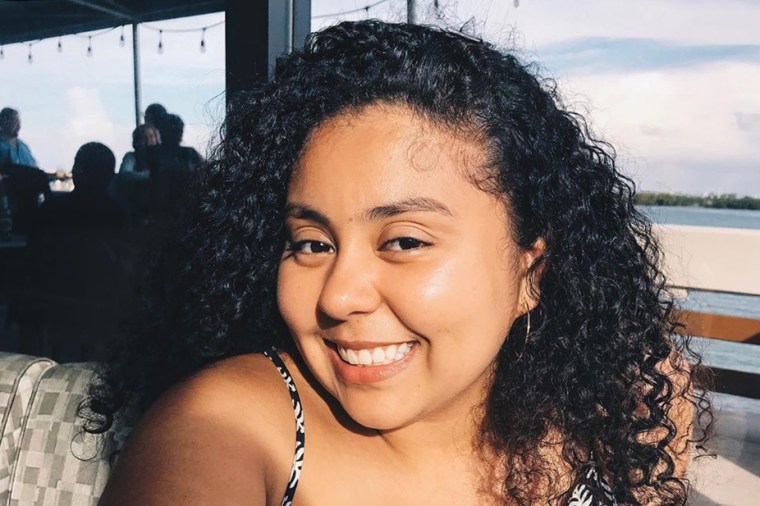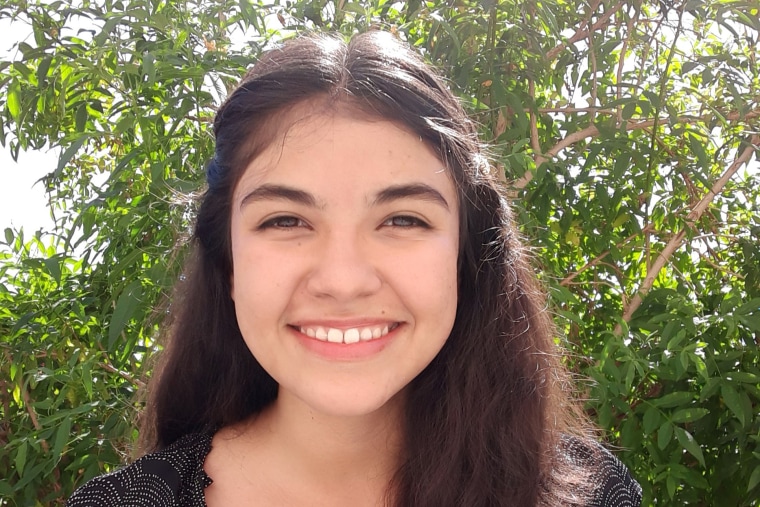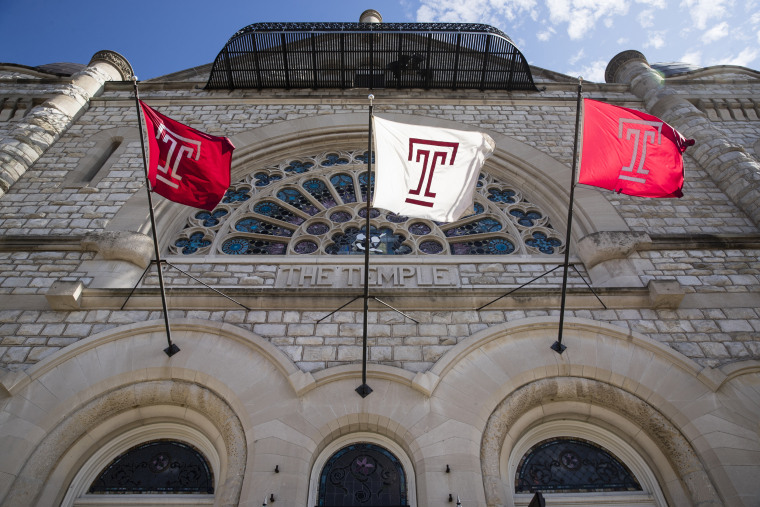College student Olivia Martínez calls it "a stunning and complete radio silence," referring to the internships she applied for that disappeared after COVID-19 upended jobs and the economy.
It's not just paid internships that are scarce, said Martínez, a rising junior at Temple University in Philadelphia.
"Plenty of us would have worked in restaurants and other places for extra money, but those have closed or have cut their hours, and those usual summer opportunities aren't there right now," she said.
For many college-age adults like Martínez, the coronavirus pandemic has meant a different kind of "cancel" culture — a lack of paid internships and summer jobs. For many young Latinos and their families, it's affecting their ability to pay bills and put food on the table.
That spurred a group aimed at expanding paid internships for Latinos and people of color to provide direct help in the form of cash stipends for young adults.
"This is very much a rapid response. Some people don't have the time. They need help now," said Pay Our Interns co-founder Carlos Mark Vera, whose nonprofit has partnered with Symba, an internship management platform, to create the Intern Relief Fund through the #SaveInternships campaign.
"The pandemic has brought out a lot of inequities — some are hurting more, and we want to help," Vera said.
Full coverage of the coronavirus outbreak
The campaign, funded by contributions, is giving out stipends from $150 to $1,500, and recipients aren't required to pay the money back. Since the program started in May, applicants have sought a total of more than $1 million dollars in aid, with the average stipend at $525. In five days alone, the group had more than 900 applications for aid.
Fewer jobs, for students and parents
Miami native Diana Escorcia, 22, a recent graduate of Hamilton College in upstate New York, was all set with a paid internship in the marketing department of a major cruise line. She was counting on the internship to help her mother, a house cleaner whose work has nearly disappeared with the pandemic at the same time she is recovering from health issues, including a stroke.
"Before the pandemic, my mother would clean one or two houses a day. Now it's down to maybe one or two a week," Escorcia said.

While she understands why the company had to cancel the paid internship, it was hard news to swallow, Escorcia said. Her college had given her a refund on room and board when classes went fully online in the spring, but the money was running out fast.
Escorcia and her mother were within days of considering a move to Tampa, Florida, to stay with relatives to save some money when the $600 stipend from Pay Our Interns came in the mail.
"I was really excited," Escorcia said. "This will definitely help us while I look for a job in the meantime."
Lizbeth L., whose last name is being withheld because her parents are undocumented, is a recent high school graduate from California's Coachella Valley. Lizbeth, who has been awarded a full scholarship to Stanford University, is the first in her family to go to a four-year college, but she is deferring until 2021 to work and help her family financially.
She had been counting on a paid internship with a community relations organization, but when the pandemic closed things down, her internship went away, too. She had already been dealing with the pandemic's effects; as a low-income student, she qualified for free lunch at her high school, but when classes went online and school transportation shut down, she would have to walk herself an hour in the 110-degree desert heat to get a sandwich.

"Our family doesn't have reliable transportation, and my mother lost a lot of work because she's a house cleaner," she said. "Because my parents are undocumented, they can't apply for unemployment."
Lizbeth said the $300 stipend from the program is a lifesaver: "I'm really happy. This helps a lot!"
Vera also set up a special Pay Our Black Interns effort around Juneteenth, and all of the money raised around the holiday has gone to African American students, including Samaria Parker, 22, a rising senior at the University of North Carolina whose internship was canceled.
Parker is immunocompromised and fears getting exposed to the coronavirus, so she has been looking for positions that would allow her to work virtually, but nothing has come up.
Parker said she feels some relief with the $900 she got from the program. "The stipend helps with rent and utilities," she said. "This will help me focus on figuring out how to finance myself for the rest of the summer, work on my résumé, look at the fall."
Looking for donations — and more virtual internships
Vera said his nonprofit is reaching out to companies and foundations to help fund the stipend effort to help more applicants.
"This crisis isn't going away any time soon," he said.
At the same time, he's working on the group's original mission — pushing for organizations to offer more internships that can be fulfilled virtually during the pandemic.
"Internships open doors that previously didn't exist, and it can help you reach economic stability," he said.
Download the NBC News app for full coverage and alerts about the coronavirus outbreak
Pay Our Interns was founded by Vera and Guillermo Creamer Jr. Both had prestigious college internships in Congress and even at the White House — but they were unpaid. They started a campaign highlighting how unpaid internships led to fewer career opportunities for economically disadvantaged youth, especially Latinos and Blacks. Their work has led to a substantial increase in the number of legislators and others offering paid internships in their offices.
While internships have long been seen as a path to professional and personal growth, the percentage of Latinos who participate in the programs still lags behind that of their non-Hispanic white counterparts.
Few internships among Latinos
A study out last month by Pay Our Interns found that only 5 percent of all congressional interns are Latino, even though Latinos represent 20 percent of all undergraduate students nationwide.
The study also found that there is "little to no information about congressional internship programs and who they employ," as more than a third of House offices didn't participate, saying "it was against office policy." Pay Our Interns called that "a lack of transparency" and "a key driver in ensuring the lack of racial diversity in the congressional workplace."

The National Association of Colleges and Employers said Latinos are 15 percentage points less likely to have internships than non-Hispanic whites — 53 percent, compared to 68 percent.
Because many internships are unpaid, they are nearly inaccessible for economically disadvantaged Latino students, said Antonio Tijerino, president and CEO of the Hispanic Heritage Foundation.
Tijerino was an unpaid intern in his college days. He has sought to help by hosting "hundreds" of interns in his suburban Washington home over the last 20 years.
Now, with the coronavirus, helping students and their families stay afloat adds to the urgency of securing paid work experience for young people.
Escorcia said she's trying to keep a positive attitude in the middle of this unexpectedly different summer.
"I'm thankful for my support system. My mother helps by reminding me to be thankful for what we have," she said, "and that we are healthy and safe."
Follow NBC Latino on Facebook, Twitter and Instagram.
